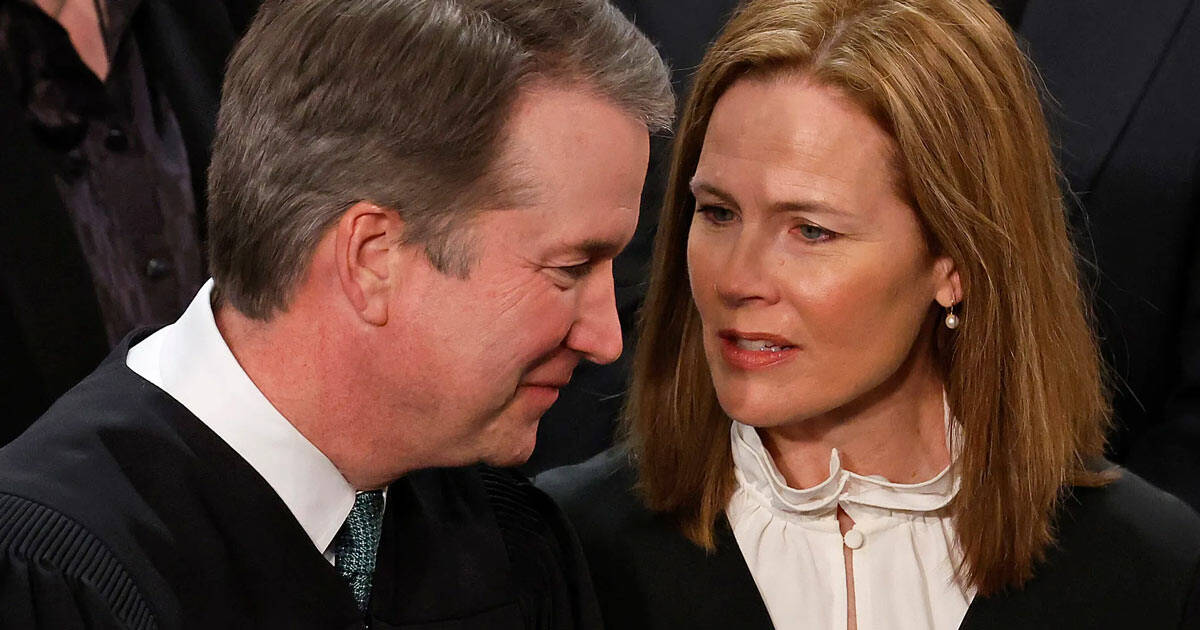The United States Supreme Court has ruled in favor of a controversial nuclear waste storage facility in West Texas.
The green light from the high court clears a major regulatory hurdle for the project, ABC27 reported.
With a 6-3 decision, the court endorsed the Nuclear Regulatory Commission’s authority to license the facility.
The ruling came despite fervent opposition from Texas officials concerned about safety and permanence.
The Supreme Court’s decision permits the temporary storage of nuclear waste in Texas.
However, officials in the state have raised concerns about safety and arguments regarding federal law restrictions.
Justice Brett Kavanaugh, who penned the opinion for the court, argued against Texas’s challenge to the Nuclear Regulatory Commission’s decision to grant a temporary license.
The state of Texas had contended that off-site storage of nuclear waste posed significant risks and was beyond the scope of authority usually granted for such facilities.
The ruling dismisses significant aspects of Texas’s arguments against the storage facility, which is located over the Permian Basin.
The court did not entertain Texas’s broader argument that the federal government could not license a private site for storage, an issue of significant legal concern.
Justice Neil Gorsuch dissented, expressing concern that the storage of nuclear waste should only occur at a nuclear reactor or federally owned location.
Gorsuch highlighted potential legal constraints he believes were overlooked.
This dissent touches on a broader debate regarding the legal framework surrounding nuclear waste storage in the country.
The origins of these decisions date back to the Nuclear Waste Policy Act of 1982, which mandated the federal government to establish a permanent solution for nuclear waste storage.
Yucca Mountain in Nevada was initially selected as such a site, but progress on the project has stalled amid considerable opposition.
In light of storage challenges, the Nuclear Regulatory Commission has stressed the necessity of interim solutions such as the West Texas facility.
They argue that plants nationwide are running short on storage space, necessitating an alternative arrangement while a permanent site remains elusive.
Steve Nesbit, a nuclear engineer and safety analyst, offered reassurance regarding the storage facility, stating:
“It’s very stable, very safe, stored inside some very robust containers.
“The storage of spent fuel has never harmed anyone.”
He further emphasized that most radioactivity has decayed, minimizing heat concerns.
However, the decision remains deeply divisive within Texas.
During oral arguments in March, Texas Solicitor General Aaron Nielson expressed skepticism about the temporary nature of the facility, saying:
“If anyone thinks this is temporary, I have a bridge to sell you.”
The facility’s location over the productive Permian Basin has sparked additional concerns.
Critics argue that the presence of a nuclear waste storage facility poses a potential “permanent terrorist bullseye” on one of America’s most valuable oil fields.
This highlights the broader implications of siting such a facility in an area of immense economic importance.
Despite these concerns, the Supreme Court’s decision underscores a priority on actionable interim measures to address nuclear waste handling, weighing heavily on regulatory discretion.
This reflects an ongoing balancing act between safety, legal interpretations, and economic priorities.
Justice Kavanaugh’s opinion suggests confidence in the processes and safety protocols governing temporary nuclear waste storage.
This aligns with the Nuclear Regulatory Commission’s stated positions and reassurances about facility safety.
What remains clear is the persistent need for a permanent solution to nuclear waste storage, as originally envisioned by federal law over four decades ago.
The unresolved status of sites like Yucca Mountain means that temporary solutions are relied on more heavily, challenging federal and state law interpretations.
The Supreme Court’s ruling acts not as an endpoint but as a continuation of the complex dialogue on nuclear waste.
The legal, environmental, and economic aspects of this issue guarantee further debate and potential litigation.
As regulators and industry stakeholders navigate these challenges, the Supreme Court’s decision highlights the federal government’s proactive stance on spearheading temporary storage solutions amid ongoing political and logistical hurdles.
READ MORE – Ted Cruz Calls on Trump to Destroy Iran’s Nuclear Facilities

Our comment section is restricted to members of the Slay News community only.
To join, create a free account HERE.
If you are already a member, log in HERE.